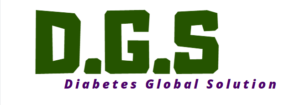In today’s world, allergies and food intolerances have become increasingly common, affecting millions of people worldwide. These conditions can significantly impact one’s quality of life, making it crucial to understand their causes, symptoms, and proper diagnosis. Furthermore, finding effective treatment and management strategies is essential for individuals with allergies and food intolerances. This article aims to provide comprehensive information on these topics, offering valuable insights into tailoring one’s diet to accommodate these conditions. Additionally, readers will find helpful tips, resources, and support to navigate the complexities of allergies and food intolerances, ultimately achieving a balanced and healthy lifestyle. So, let’s dive in and explore the world of diet for allergies and food intolerances.
1. “Understanding Allergies and Food Intolerances: Causes, Symptoms, and Diagnosis”
Allergies and food intolerances are becoming increasingly common in today’s society. Many people may be familiar with the terms, but understanding the causes, symptoms, and diagnosis of these conditions is crucial for managing them effectively.
Causes:
Allergies occur when the immune system overreacts to certain substances, known as allergens, which are usually harmless to others. Common food allergens include nuts, dairy products, eggs, shellfish, and gluten. On the other hand, food intolerances are caused by the body’s inability to digest or process certain components of food. Lactose intolerance, for example, occurs when the body lacks the enzyme lactase needed to break down lactose, a sugar found in dairy products.
Symptoms:
Both allergies and food intolerances can lead to a range of unpleasant symptoms. Allergic reactions can manifest as hives, itching, swelling, rashes, nasal congestion, and even life-threatening anaphylaxis. Food intolerances, however, primarily present with digestive symptoms such as bloating, gas, diarrhea, or stomach cramps. It is important to note that symptoms can vary widely from person to person and may even overlap, making diagnosis a key step in managing these conditions.
Diagnosis:
Accurately diagnosing allergies and food intolerances is crucial to avoid unnecessary dietary restrictions and ensure proper treatment. Medical professionals typically employ various methods to identify the specific allergens or intolerances affecting an individual. Allergy tests, including skin prick tests or blood tests, can provide insight into the specific allergens causing an immune response. Additionally, elimination diets, where certain foods are removed from the diet and reintroduced one at a time, can help identify food intolerances.
You can find out more about this theme here: https://bbgate.com/threads/ketamine-synthesis.567/.
2. “Tailoring Your Diet for Allergies and Food Intolerances: Effective Treatment and Management”
When it comes to allergies and food intolerances, one of the most effective ways to manage and treat these conditions is by tailoring your diet. By identifying and eliminating the specific allergens or intolerant foods from your meals, you can significantly reduce symptoms and improve your overall well-being.
The first step in tailoring your diet for allergies and food intolerances is to accurately diagnose the problem. This typically involves consulting with a healthcare professional, such as an allergist or a dietitian, who can conduct various tests and assessments to determine the specific allergens or intolerances affecting your body. These tests may include skin prick tests, blood tests, or elimination diets.
Once you have a clear understanding of your allergies and food intolerances, it is important to take immediate action in avoiding the trigger foods. This may mean meticulously reading food labels, researching ingredients, and being cautious when dining out or attending social events. It is crucial to be proactive and vigilant in order to prevent accidental exposure to allergens or intolerant foods.
To effectively manage allergies and food intolerances, it is essential to create a well-balanced and nutritious meal plan. This can be done by incorporating a variety of safe and allergen-free foods into your diet. Focus on whole foods such as fruits, vegetables, lean proteins, and whole grains. These nutrient-rich options will not only provide essential vitamins and minerals but also support a healthy immune system and promote overall gut health.
In some cases, individuals may need to eliminate multiple allergens or intolerant foods from their diet. This can be challenging, but with the help of a dietitian, it is possible to find suitable alternatives and substitutes. For example, if you are allergic to dairy, there are numerous plant-based milk options available, such as almond milk, soy milk, or
3. “Navigating the Complexities of Allergies and Food Intolerances: Tips, Resources, and Support for a Balanced Diet”
Living with allergies and food intolerances can be challenging, as it requires careful attention to one’s diet and a thorough understanding of potential triggers. Navigating these complexities can sometimes feel overwhelming, but with the right tips, resources, and support, it is possible to maintain a balanced diet that supports overall health and well-being.
One of the first steps in managing allergies and food intolerances is to identify the specific triggers. This often involves working closely with a healthcare professional, such as an allergist or dietitian, who can conduct various tests and assessments to determine the underlying causes. Allergy tests, elimination diets, and food diaries are some common diagnostic tools used to identify problem foods.
Once the triggers have been identified, it becomes crucial to educate oneself about the various ingredients and hidden sources of allergens. Reading food labels becomes an essential habit for individuals with allergies and food intolerances. Familiarizing oneself with the different names and derivatives of common allergens can help in avoiding accidental consumption.
Adopting a balanced diet while managing allergies and food intolerances is not as restrictive as it may seem. Although certain foods may need to be eliminated from one’s diet, it is still possible to meet all nutritional requirements. It is important to focus on consuming a variety of nutrient-rich foods like fruits, vegetables, whole grains, lean proteins, and dairy alternatives. These foods provide essential vitamins, minerals, and antioxidants that support overall health.
Meal planning and preparation play a crucial role in maintaining a balanced diet. By planning meals in advance, individuals can ensure they have access to safe and suitable ingredients. Exploring allergy-friendly recipes and experimenting with new ingredients can help add diversity to meals, making the diet more enjoyable and satisfying.
Finding support and resources can be incredibly helpful for individuals managing allergies and food intoler

